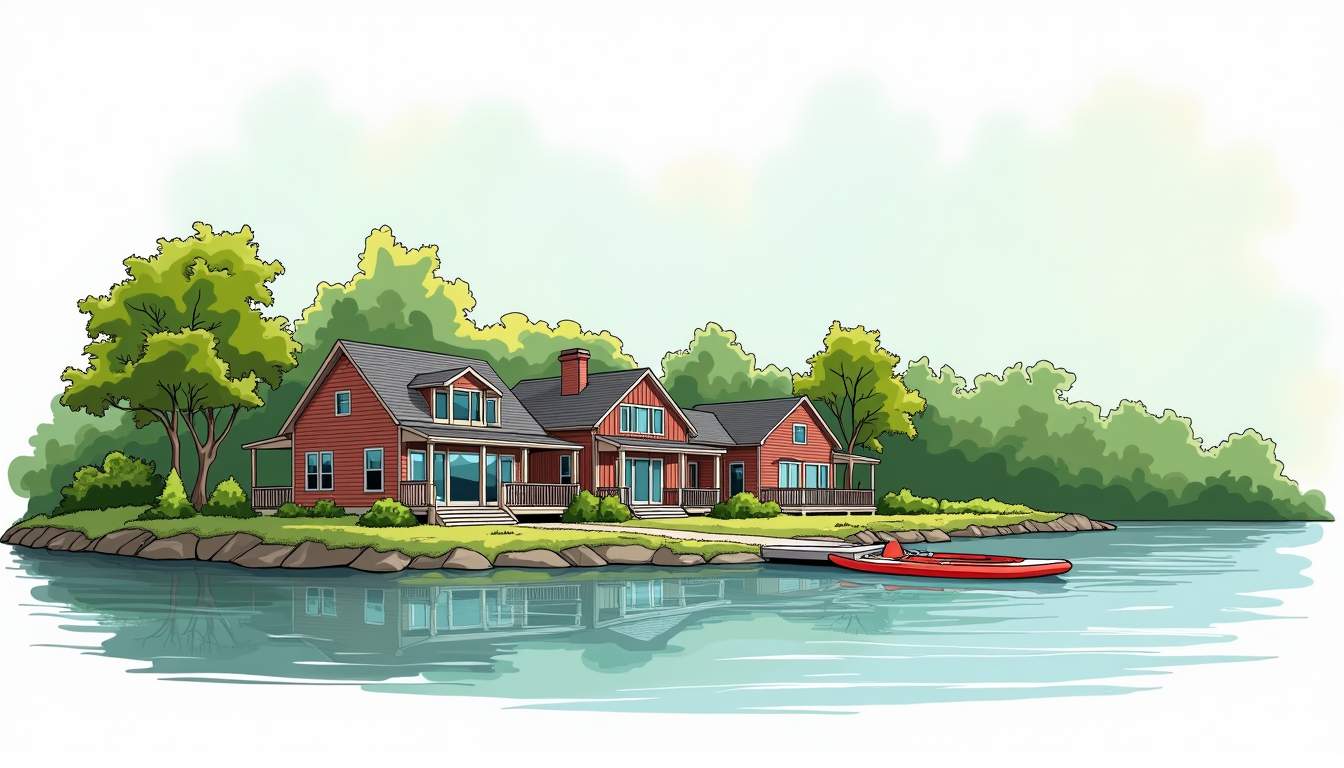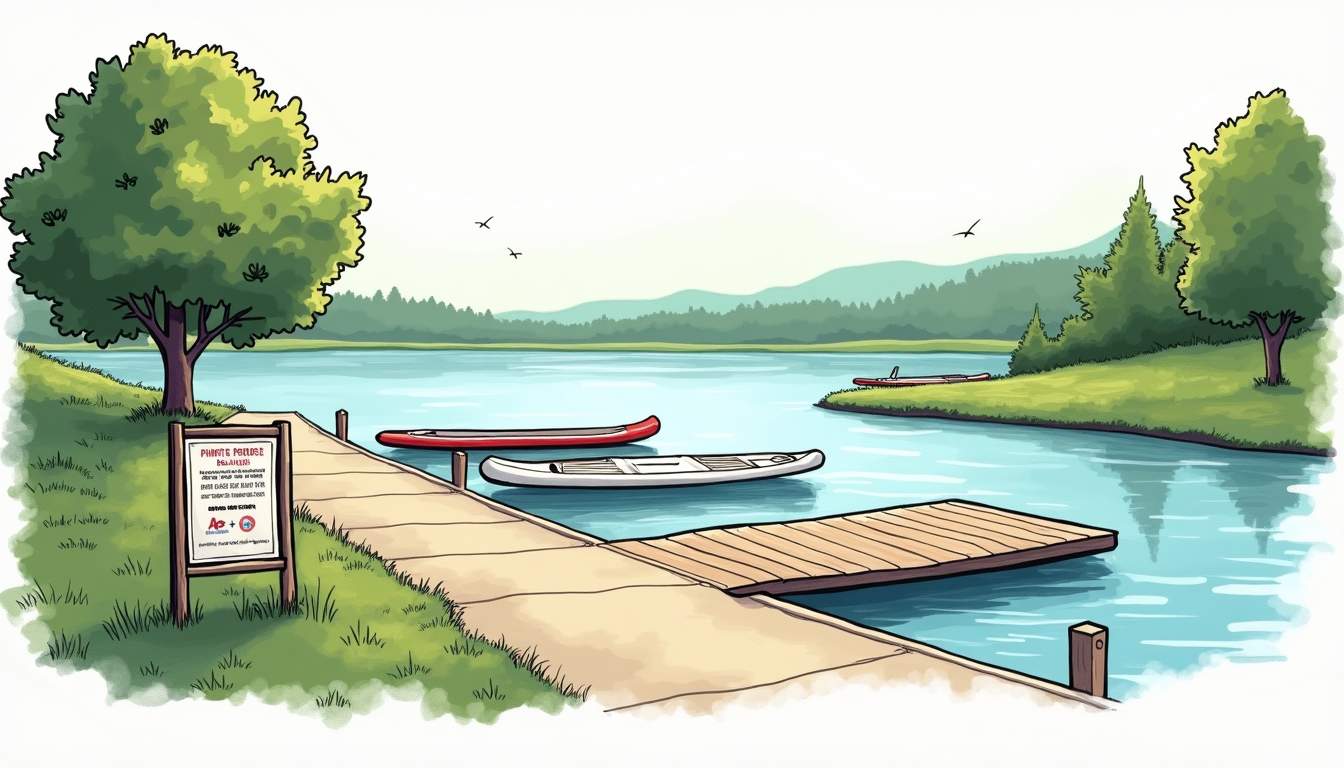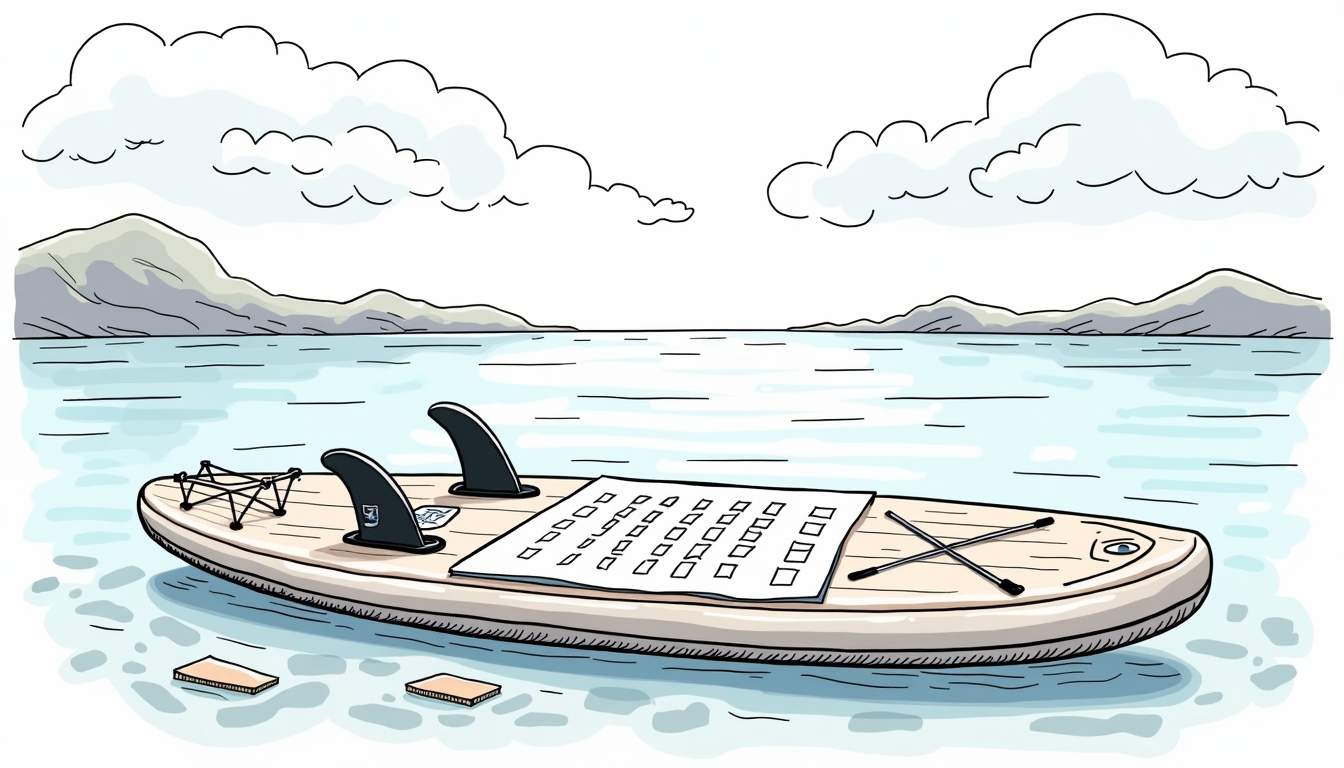
Loudon sits along the Tennessee River and benefits from a mixture of calm coves, wide river channels, and easy access to reservoirs and tributaries. For paddleboarding, those water conditions matter: gentle currents, protected launch points, and clear sightlines all make outings safer and more enjoyable. The combination of natural scenery and manageable water conditions attracts buyers who want both recreational access and a peaceful place to live.

Beyond the water, the town offers small-city conveniences—local shops, medical services, and community events—without the constant bustle of larger metro areas. Proximity to Knoxville allows for day trips into a larger urban center while maintaining the quieter pace around the river. This balance helps properties with private or shared paddleboard launch points appeal to a wide range of buyers, from empty nesters to active families.
Additionally, Loudon's community is passionate about outdoor activities, and numerous local groups organize paddling excursions and environmental initiatives to keep the river and its surroundings vibrant and accessible. The area's commitment to conservation means that water quality remains high, which is crucial for those who regularly spend time on paddleboards or other watercraft.
Real estate options in Loudon range from cozy cottages situated close to the river's edge to larger family homes with docks and boathouses, providing a variety of choices for paddleboard enthusiasts. Many neighborhoods incorporate trails, parks, and open spaces that enhance the active lifestyle, making it easy for residents to combine hobbies like biking or hiking with their water adventures throughout the seasons.
Properties that advertise paddleboard access fall into a few common categories. Waterfront single-family homes often come with private docks or gentle shorelines where a launch can be installed. Townhouses and condos in developments next to the river may offer communal docks and launch ramps, which can be a more affordable option for buyers who want access without full private maintenance responsibilities.
Off-river homes on nearby lakes or creeks provide alternative access points that tend to be less crowded than the main river channel. Some properties include easements—legal rights to cross land—to reach the water, so buyers should pay attention to how access is established. Finally, vacant lots with shore frontage can be an ideal purchase for custom-builders who want to design a home specifically oriented toward paddleboarding activities.
A private dock offers convenience and privacy, but it also comes with maintenance, permitting, and potential insurance concerns. Shared docks or HOA-managed launches spread those responsibilities across multiple owners, often reducing annual costs and administrative burden. However, shared access can mean scheduling conflicts during peak seasons and less control over modifications. Understanding the trade-offs helps match a property to lifestyle preferences.
Loudon County has several pockets with attractive water access. Along the Tennessee River, residential areas near downtown Loudon and along the southern bank present a mix of older homes and newer builds. These neighborhoods tend to offer easy river access and a short drive to local amenities.
To the north and east, subdivisions that sit on tributaries and quiet inlets can provide calmer waters for paddleboarding, often favored by beginners and families. Rural parcels with longer frontage are also available, appealing to buyers who value privacy and larger lots. Evaluating neighborhoods in terms of water conditions, community dynamics, and distance to services is essential for a satisfying purchase.
Neighboring towns such as Lenoir City and Kingston also host properties with water access, expanding the pool of potential homes. These towns offer varied price points and community atmospheres, from historic downtown districts to planned waterfront developments. Buyers who keep their search radius flexible often find better value and more options.
Not all waterfront properties are equally suited to paddleboarding. A gentle shoreline with minimal drop-off makes launching safer and easier, particularly for newcomers or those with children. Stabilized approaches—such as small ramps, stone steps, or sandy points—are very beneficial. Look for properties that already have a designated launch area or enough shoreline to create one without significant permitting hurdles.
Water depth near the shore should be shallow enough to stand easily and deep enough a few yards out for comfortable paddling. Currents and boat traffic patterns should be considered: a launch tucked into a cove or sheltered by natural landforms typically offers calmer water. Vegetation and underwater hazards like submerged logs can affect usability and should be assessed during a site visit.
Examine the dock’s structural integrity and its anchoring system, especially if the dock has been exposed to seasonal changes in water level. Shoreline erosion can undermine future usability and lead to expensive repairs. Properties that already include shoreline stabilization or have a good natural buffer are often better long-term investments.
Waterfront property ownership often comes with regulatory considerations. Local zoning and county codes govern dock construction, shoreline modification, and riparian rights. The Tennessee Valley Authority (TVA) manages much of the Tennessee River shoreline, and they maintain rules regarding docks and water access. Confirming permit requirements early in the buying process prevents unpleasant surprises and helps estimate timeframes and costs for improvements.

Wetland regulations and environmental protections can limit what is allowed near the shoreline. A protected vegetation buffer might prevent hardening the edge of the water, which influences the types of launches that are feasible. Hiring a qualified surveyor or environmental consultant during due diligence can clarify these constraints and suggest compliant solutions.
A thorough inspection should be part of any waterfront purchase. In addition to the typical structural and systems checks common to all homes, include a targeted review of the shoreline, dock, and access points. Inspectors or specialized contractors can evaluate erosion control, dock anchoring, underwater hazards, and the feasibility of creating a launch area.

Assessing seasonal water levels is important. Ask neighbors or local authorities about typical fluctuations and historical high-water marks. Survey documents should confirm the exact boundaries of the property and whether the shoreline is privately owned or subject to easements. Clarity around legal access prevents future disputes with neighbors or regulatory bodies.
Waterfront maintenance can be more costly than inland upkeep. Docks, seawalls, and shoreline features weather exposure and may need replacement every 10–25 years depending on materials and conditions. Budgeting for routine inspections, seasonal maintenance, and potential emergency repairs is prudent. Homeowners’ insurance for waterfront properties sometimes carries higher premiums, particularly for flood-prone areas.
Financing waterfront properties follows the same principles as other residential mortgages, but lenders may scrutinize specific aspects more closely. Property appraisals must consider the waterfront features and any unique risks. If a property has significant shoreline improvements, appraisal and insurance valuations should reflect their value and condition.
Some lenders or programs offer special considerations for buyers in flood zones or with waterfront exposure, but requirements vary. It helps to work with a lender experienced in waterfront properties who can navigate appraisal expectations and recommend appropriate insurance structures, such as flood insurance policies required by the National Flood Insurance Program.
Many buyers plan post-closing upgrades like building a new launch, stabilizing shorelines, or adding a dock. Including realistic cost estimates in the purchasing plan prevents overextension. Investigate contractor availability and lead times in the region—seasonality and demand can affect both scheduling and cost.
Owning a paddleboard launch home is as much about lifestyle as it is about real estate. Local boating culture, noise levels from motorboats, and seasonal events can shape the daily experience. Areas with active boating communities might be lively during summer weekends, while more remote coves stay quieter year-round.
Access to services—shops for outdoor gear, repair services, and storage facilities—can make paddleboard ownership easier. Local clubs or meetups provide opportunities to connect with other paddlers, learn about safe routes, and join group outings. Nearby parks and trails complement water-based recreation and enhance the appeal of a property for buyers who love outdoor activities.
Begin by defining priorities: private vs shared launch, proximity to town, lot size, and desired water conditions. Touring properties during different times of day and different seasons helps reveal true water behavior and neighborhood patterns. Ask sellers for records of shoreline work, dock permits, and maintenance history.
Work with a real estate agent familiar with riverfront and lakefront properties in Loudon County. Such agents understand local permitting processes, common pitfalls, and which neighborhoods match particular lifestyle needs. Include contingencies in purchase offers that allow for specialized inspections and permit research before finalizing the sale.
Moving to a paddleboard launch home brings practical considerations: storage space for boards and paddles, secure hanging or racks to protect equipment from weather, and easy access paths from the house to the water. Planning these logistics early ensures a seamless transition into waterfront living.
Purchasing a home with paddleboard access in Loudon, TN, combines the pleasures of water recreation with the responsibilities of waterfront ownership. By focusing on shoreline conditions, neighborhood dynamics, regulatory constraints, and long-term maintenance needs, buyers can find a property that supports both daily enjoyment and sound investment principles.
Due diligence—inspections, permit checks, and conversations with local experts—pays dividends. For those seeking calm water mornings, scenic paddles, and the unique lifestyle of riverside living, Loudon and the surrounding communities offer a range of options that cater to different budgets and preferences. Thoughtful planning and realistic expectations will help match buyers with a home that opens directly onto the water and into a rewarding recreational life.
Ready to embrace the ultimate waterfront lifestyle? At Tennessee National, experience luxury living with exclusive paddleboard access, a private marina, and stunning natural surroundings. Whether you desire a move-in ready home or a custom build, our premier gated community offers everything you need to enjoy peaceful riverfront days and vibrant social living. Schedule a Private Tour today and start your journey to resort-style living on the water.